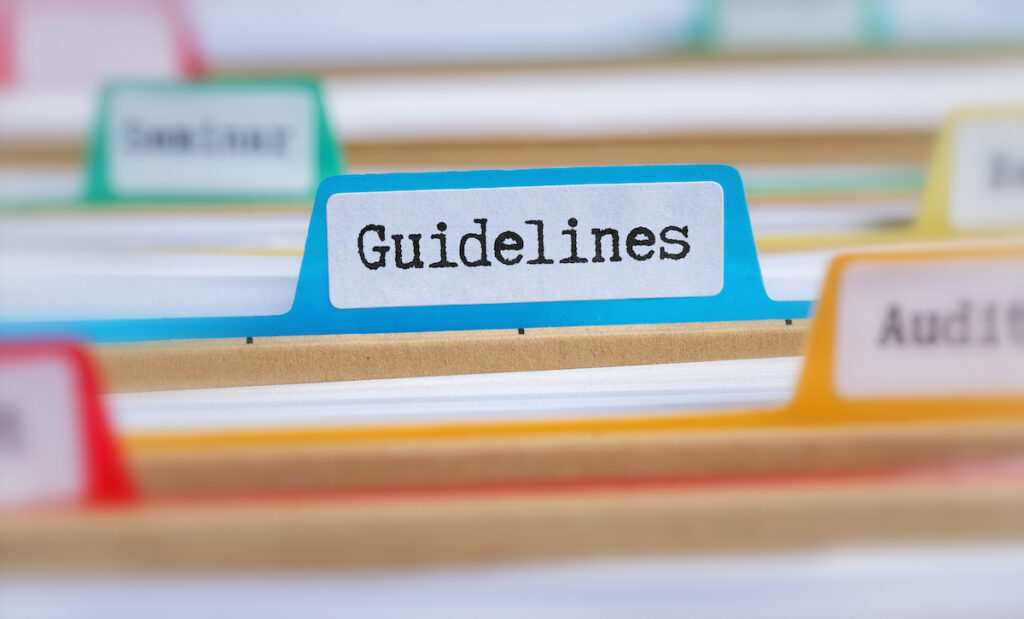
Major Depressive Disorder (MDD) is common and has significant effects on the functioning of individuals and those close to them (Hays, 1995). Treatments include pharmacotherapy and psychotherapy, and antidepressants remain one of the cornerstones of treatment.
Like a significant number of mental disorders, MDD is recurrent; around 2/3 of people will have a relapse, and to date the majority of the evidence suggests that antidepressants play a role in reducing risk of relapse (Geddes 2003, Glue 2010). NICE recommends continuing antidepressants for 6 months after recovery from a single depressive episode, increasing to 2 years if the person has experienced two or more episodes (NICE, 2010). However, existing studies have generally stopped antidepressant medication after less than 36 weeks of treatment; there is limited evidence supporting long-term continuation of antidepressants (Glue et al, 2010).
Another consideration is the effects of stopping medication. There is evidence of withdrawal phenomena when antidepressants are discontinued with these effects much more pronounced in antidepressants with short half lives (paroxetine and venlafaxine) and less problematic in longer acting medications, such as fluoxetine (Henssler, 2019). A recent Cochrane review found most relapse studies did not measure withdrawal symptoms and may have tapered medication too quickly (Van Leeuwen, 2021; you can read our blog here).
An important, unanswered question remains: is long-term continuation of antidepressants beneficial for preventing relapse?

People with lived experience of depression may take antidepressants for a maintenance period after they have recovered, but the evidence is still unclear on whether long-term continuation of antidepressants is beneficial to prevent relapse.
Methods
This study was a multicentre, computer randomised, double blind, placebo-controlled trial based in 150 GP practices across England (Bristol, London, Southampton and York). The trial included people aged 18 to 74, who were currently in remission and wanted to consider stopping antidepressants. People were prescribed Mirtazapine, Sertraline, Citalopram or Fluoxetine for at least 9 months and either had 2 prior episodes of depression or taking antidepressants for 2 years.
People were randomised either to gradual taper of antidepressant over 2 months (1 month for Fluoxetine) or continuation.
Primary outcome:
Relapse of depression as measured by modified Clinical Interview Schedule-Revised (CIS-R), measured at 12, 26, 39 and 52 weeks.
Secondary outcomes:
- Depressive Symptoms (PHQ-9);
- Anxiety Symptoms (GAD-7);
- Side effects of Medication (Toronto Side Effect Scale);
- Withdrawal Symptoms (modified 15 item Discontinuation-Emergent Signs and Symptoms checklist (m-DESS));
- Quality of Life – Physical Category (SF-12);
- Quality of Life – Mental Health Category (SF-12);
- Time to stopping medication in trial;
- Patient’s mood (Feeling worse vs Feeling same/better).
Results
The sample was mainly white (95%), relatively old (mean age 54.5), 93% reporting more than 3 previous episodes and 70% taking antidepressants for more than 3 years. 240 people were assigned to the discontinuation group and 238 to the maintenance group.
This study had very high rates of follow-up with 95% of participants having at least one primary outcome point. At the end of the 52 weeks ~85% in maintenance and ~70% in discontinuation arms completed outcome measures. There was a moderate rate of stopping trial medication with 48% in discontinuation and 30% in maintenance arms stopping medication.
Primary outcome
People continuing their antidepressants had a lower rate of relapse (HR 2.06 (95% CI 1.56 to 2.70). This translates to a number needed to treat (NNT) of 5.89 to prevent 1 relapse at 52 weeks. There were high relapse rates for both groups (56% with discontinuation vs 39% with maintenance).
Secondary outcomes
The biggest differences were found at the 12 week time point with statistically significant differences in favour of maintenance compared to discontinuation for Depressive Symptoms (PHQ-9), Anxiety Symptoms (GAD-7), Withdrawal Symptoms (mDESS), Quality of Life – Mental Health Category (SF-12)
By 52 weeks there was no significant difference between maintenance and discontinuation groups on any secondary outcome measure.
Of note the group discontinuing medication had significantly increased withdrawal symptoms at 12 weeks with an average of 3.1 new or worsening reported symptoms compared to 1.3 for the maintenance group as measured by modified DESS.
Robust sensitivity analyses
A ‘worst case’ sensitivity analysis on the primary outcome, which considered every censored participant in the maintenance group (but not discontinuation group) to have a relapse still found significant benefit for maintenance therapy (HR 1.61 (1.25 to 2.09) suggesting a robust effect.
Stopping trial medication
Of the 48% in the discontinuation group stopping trial medication, 39% went back onto antidepressants, and 10% took neither placebo or another antidepressant.
Of the 30% in maintenance group stopping medication, 20% went back onto antidepressants, with 11% taking neither placebo nor another antidepressant.

For every 6 people stopping their medication there was one additional relapse compared to those who maintained their antidepressant treatment, suggesting that stopping medication has an increased risk of relapse.
Conclusions
The authors concluded:
Among patients in primary care practices who felt well enough to discontinue antidepressant therapy, those who were assigned to stop their medication had a higher risk of relapse of depression by 52 weeks than those who were assigned to maintain their current therapy.
Relapse rates are high even among those remaining on antidepressants over 1 year (39%) and there was an increase in withdrawal symptoms on the DESS in those discontinuing antidepressants compared to placebo.

The ANTLER trial suggests that those coming off antidepressants had a higher relapse rate then those continuing. Coming off antidepressants was also associated with higher levels of withdrawal symptoms, especially at 12 weeks.
Strengths and limitations
This was a well-designed large, well powered and multicentre RCT with robust procedures to ensure blinding of participants and researchers. It was publicly funded by NIHR.
The population had minimal exclusion criteria and tapering regimes reflect a standard tapering regimen that may be used in a primary care setting (though individual variation may occur, see below). This ensures reasonable generalisability to real-world clinical populations.
The effect found was clinically and statistically significant and survives worst-case sensitivity analysis.
However, the population in the trial was not diverse with mainly white, female, city-based people which affects generalisability. Furthermore, this study only examined certain antidepressants, and one could suggest that Mirtazapine would be considered different to SSRIs.
There was limited data collected about the original indication for antidepressants which are used for many conditions including anxiety disorders and chronic pain.
Despite the effective procedures for blinding, over 70% of those discontinuing were able to identify their allocated group. This suggests that discontinuation is very difficult to blind. In addition to this, the adherence to medication was relatively poor with around half of the discontinuation group and 30% of the maintenance group stopping their medication, although this can be seen as a marker of failure of discontinuation.
This study looks at symptoms for a year following discontinuation, a reasonable length of time. However, it is unable to comment on longer-term impact of stopping medication, such as ease of treatment of future episodes, or long-term physical health impact.
The findings indicated that those discontinuing antidepressants had a spike in withdrawal symptoms around 3-4 weeks after they stopped their antidepressant medication, which could be considered a typical time for withdrawal symptoms. Without knowing the specific withdrawal symptoms, it is difficult to interpret these findings. Ideally one would wish to know the “fine grain” details of how these people were, i.e. relationship with depression symptoms, severity of withdrawal symptoms and how they were represented amongst antidepressants in the trial. This is particularly so as groups separated out from around this time point.

The ANTLER trial was undoubtably very well-designed and conducted study, but could withdrawal symptoms relapse have partially confounded results by being mistaken for relapse and compromising blinding?
Implications for practice
This study fills the evidence gap regarding longer-term use of antidepressants to prevent relapse, in a representative group of people in primary care. The suggestion of a two-fold decrease in time to relapse in those stopping medication is consistent with the meta-analytic evidence (Geddes, 2000).
It should also be noted that, of the 180 people who completed the discontinuation arm, 54% were still off antidepressants at 52 weeks. This has the more optimistic message that around half of those trying to stop antidepressants will be successful one year later-though the natural history of relapse would suggest longer-term follow-up is necessary.
Furthermore at 52 weeks, those who did trial discontinuation did not appear to have lower quality of life, increased depression or anxiety symptoms compared to those continuing antidepressants. This may be due to the intention to treat analysis (i.e. reflecting allocation initially, not what they ended up on) because 40% of participants who discontinued treatment resumed antidepressants. Nonetheless there is no evidence to suggest long term harms of attempting a trial of stopping antidepressants.
Finally there is the question of whether withdrawal symptoms were interpreted as relapse. The rates of withdrawal would have had to be high-even with Fluoxetine and Mirtazapine (two drugs less associated with withdrawal), and the 2 extra points on DESS would need to be wholly clinically relevant (and not driven by outlier data) for this to be the case. In clinical practice, withdrawal symptoms can vary on an individual basis, and therefore tapering regimens should differ accordingly, based on variables such as type of antidepressant and length of time taking antidepressant medication.
Policy
This study demonstrates that even in longstanding remission, risk of relapse on cessation of antidepressants remains. There is little evidence that the 2-year mark is particularly meaningful for being a safe time to discontinue medication. Instead, the decision to discontinue medication may need to be more nuanced, and based on individual factors, such as specific antidepressant side-effects and natural history of the person’s depressive illness (including social factors such as life events).
Further research
A secondary analysis of ANTLER to explore contribution of withdrawal would be helpful in clarifying some outstanding questions. Additional studies might use more detailed analysis of withdrawal symptoms and correlated these with depression symptoms, in a similar population.
Though relative risk of relapse was decreased by a magnitude of around 2, absolute risk of relapse was still high in the maintenance group, suggesting that we require alternative interventions (pharmacological, psychological, social) for this significant group of people.

This study should alter the NICE guidance of treatment for at least 2 years following remission with risk factor history. Instead, discontinuation should be acknowledged to always carry a risk of relapse and this risk/benefit discussed with patients on a case-by-case basis.
Statement of interests
RRZ has previously co-authored a paper with Professor Glyn Lewis. RRZ is a paid employee of Mindset Technologies Ltd – a company designing an app-based screening and intervention programme for Dementia.
SJ has received honoraria for educational talks given on Psychosis from Sunovian, and his employer KCL has received Honoraria for talks he has given on Bipolar Disorder for Lundbeck.
Links
Primary paper
Lewis G, Marston L, Duffy L et al (2021) Maintenance or Discontinuation of Antidepressants in Primary Care. N Engl J Med. 2021 Sep 30;385(14):1257-1267.
Other references
Geddes JR, Carney SM, Davies C, et al. (2003) Relapse prevention with antidepressant drug treatment in depressive disorders: a systematic review. Lancet 2003;361:653-661
Glue P, Donovan MR, Kolluri S et al. (2010) Meta-analysis of relapse prevention antidepressant trials in depressive disorders. The Australian and New Zealand journal of psychiatry. 2010;44(8):697-705.
Hays RD, Wells KB, Sherbourne CD et al (1995). Functioning and well-being outcomes of patients with depression compared with chronic general medical illnesses. Arch Gen Psychiatry. 1995 Jan;52(1):11-9.
Henssler J, Heinz A, Brandt L et al (2019). Antidepressant Withdrawal and Rebound Phenomena. Dtsch Arztebl Int. 2019 May 17;116(20):355-361. doi: 10.3238/arztebl.2019.0355. PMID: 31288917; PMCID: PMC6637660.
Michelson D, Fava M, Amsterdam J, (2000). Interruption of selective serotonin reuptake inhibitor treatment. Double-blind, placebo-controlled trial. Br J Psychiatry. 2000 Apr;176:363-8. doi: 10.1192/bjp.176.4.363. PMID: 10827885.
NICE. The NICE Guideline on the Treatment and Management of Depression in Adults. Updated Edition. In: Excellence NIfHaC, editor. London 2010.
Photo credits
- Photo by Towfiqu barbhuiya on Unsplash
- Photo by Towfiqu barbhuiya on Unsplash
- Photo by Matteo Badini on Unsplash
- Photo by Nadine Shaabana on Unsplash
- Photo by Muhammad Ruqi Yaddin on Unsplash
